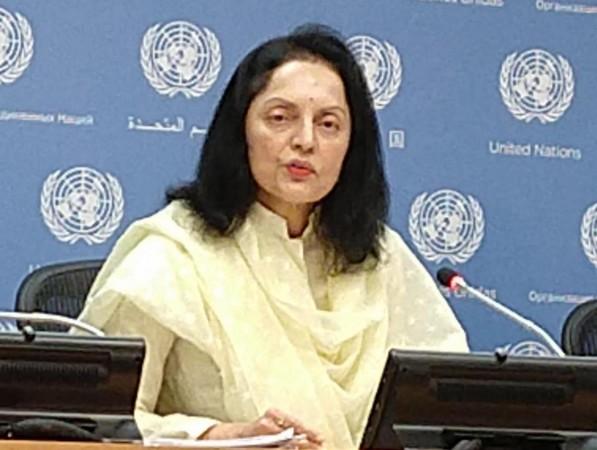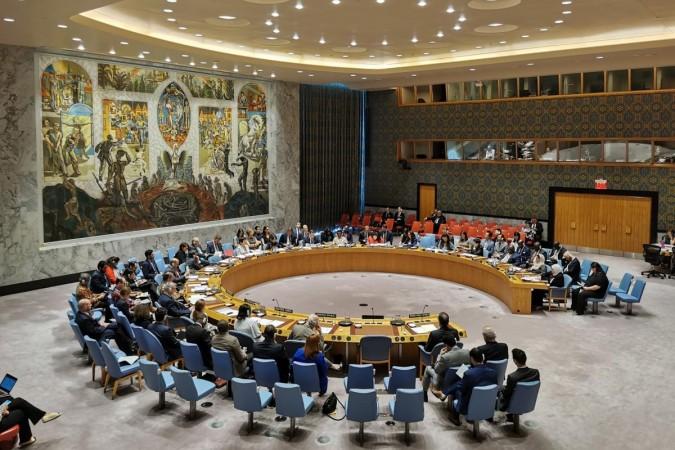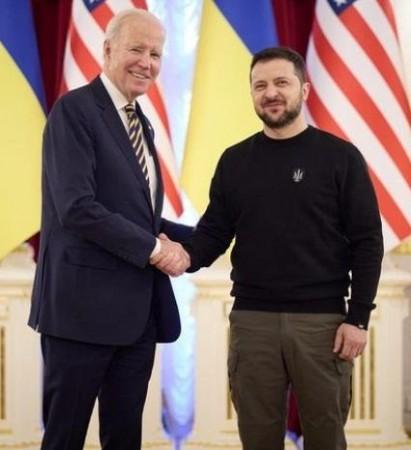India has abstained for the sixth time on a resolution calling for Russia to end the invasion of Ukraine that was adopted by more than two-thirds of the votes in the UN General Assembly in a snub to Moscow.
The vote on the resolution sponsored by Ukraine and more than 65 co-sponsors took place on Thursday, the eve of the first anniversary of the invasion, while simultaneously a roundtable sponsored by India's mission to explore the concept of "Gandhian Trusteeship" for world peace was taking place next door.
Explaining India's abstention, the country's Permanent Representative to UN, Ruchira Kamboj, who rushed to the General Assembly chamber from that meeting, said that "we will always call for dialogue and diplomacy as the only viable way out".

The resolution did not mention negotiations to end the conflict, but called for "diplomatic efforts to achieve a comprehensive, just and lasting peace in Ukraine, consistent with the Charter".
Kamboj asked, "Can any process that does not involve either of the two sides ever lead to a credible and meaningful solution"?
"While we take note of the stated objectives of today's resolution, given its inherent limitations in reaching our desired goal of securing lasting peace we are constrained to abstain," she said.
Kamboj invoked India's statement that "this cannot be an era of war" and said, "Escalation of hostilities and violence is in no one's interest. Instead, an urgent return to the path of dialogue and diplomacy is the way forward."
Resolution deplores Russian invasion
The resolution was adopted by 141 votes, with seven against and 32 abstentions in the Assembly where 191 of its 193 members retain voting rights.
The resolution deplores Russia's invasion and demands its immediate withdrawal for a "comprehensive, just and lasting peace". It also demands the prosecution of crimes and justice for victims.

Earlier, two amendments sponsored by Russia's close ally Belarus to gut the resolution were voted down, receiving only 11 votes for one and 15 for the other.
India abstained also on the amendments that sought to remove references to Moscow's aggression and invasion and the demand for it to withdraw from occupied territories, while calling instead for an end to arms supply to Ukraine.
Pak raises Kashmir issue, ignored
In a sideshow, Pakistan's Permanent Representative Munir Akram brought up Kashmir claiming that it had parallels to Ukraine, which the sponsors of the resolution ignored.
Pratik Mathur, a counsellor at India's mission, said it was an "uncalled for provocation" that "is particularly regrettable and certainly misplaced at a time when after two days of intense discussions, we have all agreed that the path of peace can be the only path forward to resolve conflict".

Kamboj said that despite the support of member states for diplomatic efforts to end the conflict and UN Secretary-General Antonio Guterres' attempts to promote a comprehensive peace, "reports from the ground portray a complex scenario with the conflict intensifying on several fronts."
The General Assembly took up the resolution in an emergency session because of the paralysis of the Security Council hobbled by Russia's vetoes and it has brought to the fore demands for reforms, which India has been lobbying for.
India's Permanent Representative to UN pointedly asked, "Has the UN system and particularly its principal organ, the UN Security Council based on a 1945 world construct not been rendered ineffective to address contemporary challenges to global peace and security"?

Only the five countries that were considered the winners of World War II were given veto rights in the Council. Unlike Security Council resolutions, those of the General Assembly have no enforcement powers and only carry moral influence.
Sixth UN Resolution since Ukraine invasion began
Thursday's was the sixth resolution on Ukraine since the invasion that began on February 24 a year ago and India has abstained on all of them.
Kamboj said that India was concerned that the "conflict has resulted in the loss of countless lives and misery, particularly for women, children and the elderly, with millions becoming homeless and forced to seek shelter in neighbouring countries... economic reports of attacks on civilians and civilian infrastructure are also deeply concerning".
India, for its part, was helping deal with its fallout in Ukraine and elsewhere, she added.
We are providing both humanitarian assistance to Ukraine and economic support to some of our neighbours in the Global South under economic distress even as they stare at the escalating costs of food, fuel and fertilisers, which has been a consequential fallout of the ongoing conflicta, she said.
(With inputs from IANS)

















